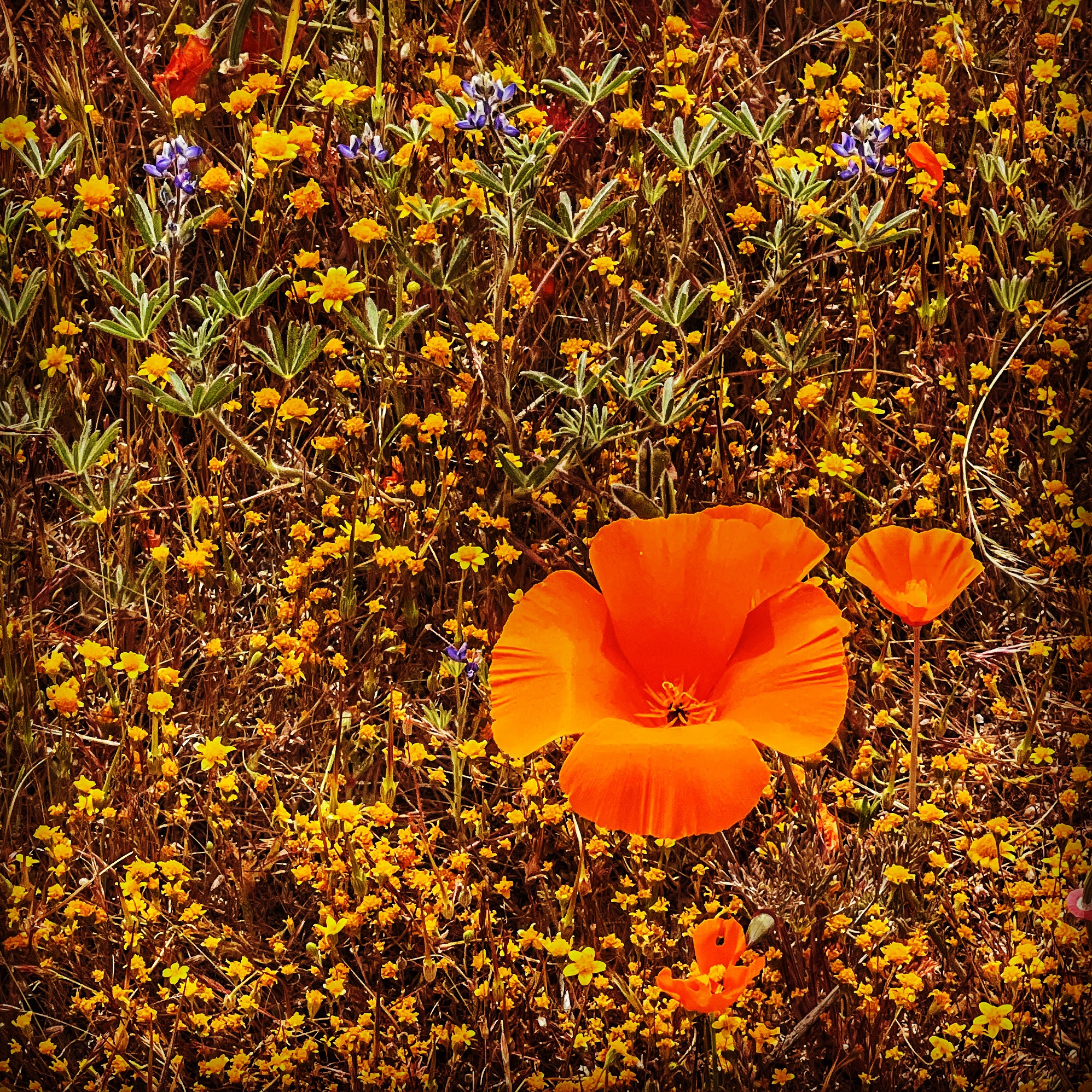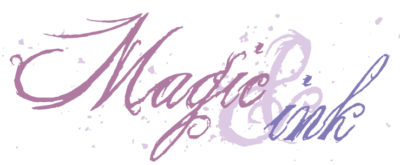
A version of this post was originally published on September 16, 2007. A friend, Gaby, had asked me to answer her questions about writing and creativity, and I was responding via the blog.
Gaby wrote:
It seems so fascinating that a great deal of creative people feel this seed germinate within them at such a young age … If you do not feel that urge, that passion when very young, does it diminish the chance of it developing later in life. My same friend’s mom picked up a paint brush at 52 years old and discovered she could paint. She now sells paintings at an alarming rate, and in all mediums (even watercolor which drives me mad because for the life of me I can’t make anything but blobs with watercolor).
It discourages me, I must admit. Hearing all these talented people express knowing exactly when and how they started, receiving recognition for their work, and mostly at a young age. I’ve always romanticized the idea of being a writer, but I never seem to be able to actually follow through on my projects due to many different fears. I suppose that leads to my next question.
How does one get over the fear of mediocrity? How do you forget your audience? Perhaps you do not forget at all? What is the relationship between your confidence as an artist, vs. those who evaluate your art?
Just minutes after reading Gaby’s questions, I read a blog entry by Holly Lisle which seemed to address these very issues in an indirect manner. At least, they made me stop and think a little bit longer about what my answers would be. I’m not going to pull quotes from her blog, but feel free to go take a peek, if you want … I’ll wait for you to come back.1
When I finished reading that post, I found I was asking myself why I wanted to be a writer.
There’s an old saw in the business that you may have heard: Do you want to write or do you want to have written? It’s meant to separate the wheat from the chaff (to make use of another old saw), to discriminate the “real” writers from people caught up in the glamorous idea of having written a book. I used the word discriminate deliberately, because there is a real bias showing when this particular turn of phrase is used, most usually by people who are working really hard, day-in and day-out, in an attempt to write stories and even make a living at it.
Without being overly critical of those folks — because, really, I am/want to be one of that camp — I think it’s not very fair, and probably damaging to a lot of people’s creative spirits.
Think about what it must feel like to hear that you can’t be a writer unless you write every day. Well, I’ll tell you what, I don’t paint and draw every day, but I still consider myself an artist. No, I’m not aiming to be a professional artist, but I enjoy being able to express myself visually every once in a while. I’m a hobby artist. It’s something I do for fun. Cannot someone have the same relationship with words, dabble with them every once in a while when vocation and avocation and obligations allow?
Not according to those who resort to the old “writers write” buzzwords to scare away those who aren’t really “serious” about the craft. According to them, if you’re not applying “butt in chair” every single day, if you haven’t had a life-long love affair with words and stories, if you’re not willing to surrender family, friends and a good night’s sleep in order to reach “The End,” then you’re not a writer and you might as well give it up.
No wonder so many want-to-be writers are scared from ever picking up the pen. That’s a lot of pressure, a huge commitment, especially when you may be unsure if you have the actual skill or drive to see it through to the end. And I don’t mean the end of the story, necessarily, but the idealized culmination of the whole process: professional publication.
There seems to be an undue emphasis on publication in writing, more than in any other artistic field. It derives, I think, from the natural desire to share what you’ve created, and writing more than any other form of artistic expression has come to depend upon publication as a means of sharing (and this is a whole ‘nother topic of mine, but off track for the moment), which has led to an idealization of the image of a “real writer” as someone who is published, with all the associated glitz. Ergo, what we all think we need to be shooting for if we dare to pick up the pen. This will change, I think, with the Internet and new media — it’s already changed, if you consider the hordes of people creating fan fiction and sharing it online, just for fun. And look at what NaNoWriMo has done. 2
But let’s get back to the basic question: why do you write? Why do I write? My previous response, “When I was in 4th grade my mother told me I should be a writer and it kind of stuck,” seems trite in retrospect, especially considering that it was 40+ years ago, and I’ve yet to accomplish anything of real significance (as a writer). Why do I still hold fast to the dream of making a living as a writer of fiction when all the other childhood fancies — teacher, horse rancher, Hollywood producer — have lost their glamor? Clearly there must be something about writing itself that fuels my inner desires.
Part of it is the words, yes. There’s something immensely satisfying about stringing and restringing words together to try and convey a thought or image, and thankfully I’m pretty good at it. I could do this for hours (I’ve been doing it for hours right now). But if it were only about the words then I’d probably be more of a poet than I am.
No, for me it’s definitely more about the stories. I think my interest in writing fiction comes from the thrill I get from getting swept away by a good story and the desire to create that thrill for myself. For other people, yes, because hearing that someone enjoyed something you’ve written always feels good … but mostly for myself.
I have a lifetime daydreaming habit; I can’t recall a time when I haven’t indulged in mental storytelling, thrusting myself into a role in some adventure or romance, playing and replaying scenes and events in my mind, just as if I were a character in a book I enjoyed. Sometimes these little fantasies are based on my own life; more often they’re based on other works of fiction, or are spawned from some snippet of a dream that caught my attention. It is the level of personal engagement that appeals (and is why roleplaying is so dangerously addictive) — I’m not just reading a story, I’m a part of it.
Writing is an extension of this woolgathering, a way to make permanent some of the better daydreams I have enjoyed, so I can go back and enjoy them another time. Let me explain by example: there’s a story I wrote a few years ago, a piece of backstory fiction I wrote for a roleplaying game; I don’t know or care if anyone else ever reads this particular story, but I go back and read it probably a couple times a year, and really enjoy it. I like the characters, I like what happens, and I think the writing itself is pretty decent.
Ultimately, I think the reason I want to be a writer is that I want to have a shelf full of books that I’ll know I’ll enjoy reading repeatedly, because I made them exactly to my enjoyment specifications. Even if there was no possibility of ever getting published, and I knew no one would ever read anything I wrote, I still think I would attempt to capture stories on paper for my own sake.
Writing something that other people enjoy enough to publish and buy would simply allow me to indulge my self-interest on a more regular basis.
So that’s why I write. And, to come the long way round to the starting question, when I remember that the real audience I’m writing for is myself, then fear of mediocrity dissipates. I don’t mean I’m not capable of mediocrity by my own set of standards (because I do have rather high standards) but that there is no fear. Other people may criticize or praise my work, and I can either learn from it or ignore it, but I am the ultimate arbiter. If I am writing to please myself, then I can’t go wrong.
And ergo the problem caused by the whole “write to publish” mindset that is so prevalent today: people get caught up in the standards of the industry (a business, not an art) and become afraid they can’t meet them, and that fear paralyzes them from even trying. You have to figure out what it is about writing that interests you and figure out your own standards for what you want to accomplish. Once you understand that, no matter your goals or ambitions (or lack thereof), then there should be nothing to stop you.

- And may I just say, congrats to Holly Lisle for keeping this 17-year-old post online for all these years, while I have to keep reposting old things after years of losing the best stuff to the vagaries of whim and technology.
- Since I wrote this post 17 years ago, independent publishing has taken off in many directions, and more writers than ever can call themselves published, whether they are making money off the endeavor or not, whether they even want to make money or not. But I still feel there’s a stigma against fiction that the author isn’t paid for, money being our culture’s arbiter of worthiness. Nobody is giving Hugos or Nebulas to stories published on Wattpad unless they rise above the chaff and get snatched up by the traditional publishing establishment. But that transition is based as much upon the author’s desire and marketing skills as it is upon the quality of the work. There are lots of authors publishing stories these days just because they like to write them, and I say more power to them!
